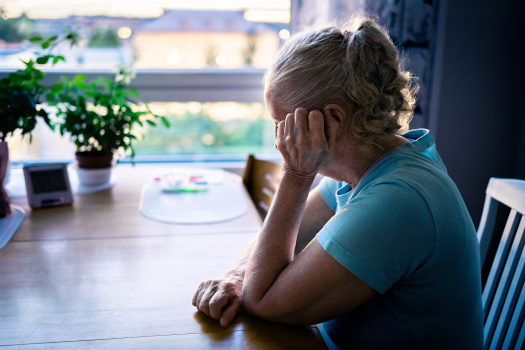Table of Content
Social isolation is a significant health concern for older adults, affecting both their mental and physical wellbeing. Understanding its impact is the first step toward finding solutions and fostering a healthier, more connected life for seniors.
The Mental Health Toll
Loneliness and social isolation are closely linked to a range of mental health issues in seniors. When older adults lack regular social interaction, they’re at higher risk for developing depression and anxiety. This emotional distress can stem from a feeling of being forgotten or a lack of purpose.
Studies have also shown a connection between prolonged isolation and an increased risk of cognitive decline, including a higher likelihood of developing dementia and Alzheimer’s disease. Without the mental stimulation that social engagement provides, cognitive functions can deteriorate more rapidly.
If your senior loved one has Alzheimer’s and needs help managing daily tasks, reach out to Home Care Assistance, a leading provider of Auburn Alzheimer’s care. Home Care Assistance provides reliable caregivers around the clock to help your loved one age in place safely and comfortably while living with Alzheimer’s disease.
Physical Health Consequences
The effects of social isolation aren’t limited to mental health. They have serious physical repercussions as well. Research indicates that isolated seniors are more likely to experience a variety of health problems, including:
- Cardiovascular issues – Loneliness has been linked to higher blood pressure and an increased risk of heart disease and stroke.
- Weakened immune system – Chronic loneliness can lead to increased inflammation and a suppressed immune response, making seniors more vulnerable to illnesses and infections.
- Poor health habits – Seniors living alone may be less motivated to cook nutritious meals or engage in regular physical activity, leading to malnutrition and a sedentary lifestyle.
- Increased mortality risk – Several studies have found that social isolation is a significant predictor of mortality, with some suggesting its impact is comparable to risk factors like smoking and obesity.
The Role of Mobility and Access
Physical limitations can be a major contributor to social isolation. As seniors age, they may face challenges with mobility that make it difficult to leave the house, visit friends, or participate in community activities. A lack of reliable transportation can further compound this issue, especially for those who no longer drive. When seniors are unable to access social opportunities, they can become trapped in a cycle of isolation that’s difficult to break, exacerbating both physical and mental health decline.
Whether you need respite from your caregiving duties or your aging loved one needs live-in care in Auburn, Home Care Assistance can meet your family’s care needs. Our dedicated caregivers are available around the clock to provide transportation to doctor’s appointments, ensure seniors take their prescribed medications, and help with a variety of tasks in and outside the home.
How Meaningful Connections Help
Building and maintaining meaningful social connections is crucial for combating the negative effects of isolation. It’s not just about the quantity of interactions but also the quality. Engaging in activities that provide a sense of purpose and belonging can significantly boost a senior’s overall health. This can include:
- Volunteering for a cause the senior cares about
- Joining a club or group based on a hobby
- Participating in community center programs
- Maintaining regular contact with family and friends, whether in person, by phone, or through video calls
These connections provide emotional support, mental stimulation, and a reason to stay active, all of which contribute to a healthier and more fulfilling life.
Social activity is only one of many components that contribute to robust mental and physical health in seniors. Auburn home care agencies can be a great boon to seniors. With the help of the caregivers at Home Care Assistance, your aging loved one can lead a happier and healthier life. We offer a revolutionary program called the Balanced Care Method, which encourages seniors to eat nutritious foods, exercise and socialize regularly, and focus on other lifestyle factors that increase life expectancy. If you need professional care for your loved one, Home Care Assistance is just a phone call away. Reach out to one of our Care Managers today at (334) 744-7100.
